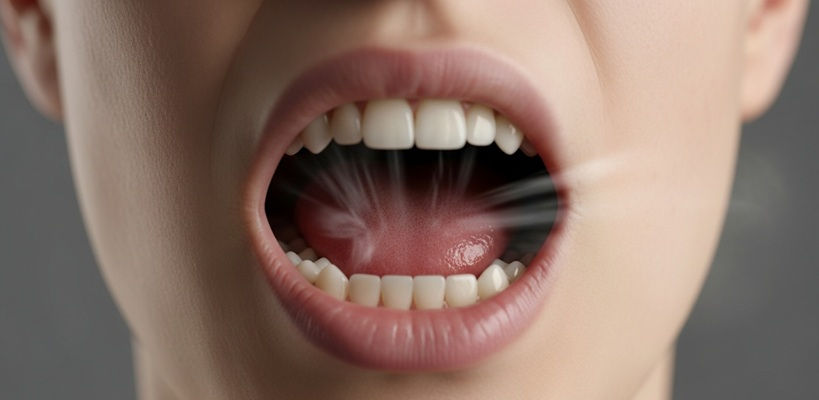What type of CPAP mask is best for mouth breathers?
- tricaremedicals
- Jul 28, 2025
- 4 min read
Continuous Positive Airway Pressure (CPAP) therapy is a lifeline for individuals with sleep apnea, ensuring restful sleep by keeping airways open. However, for mouth breathers, choosing the right CPAP mask is critical to maximizing comfort and therapy effectiveness. Mouth breathers require masks that accommodate their breathing patterns while maintaining a secure seal to prevent air leaks. This blog explores the best CPAP mask for mouth breathers, breaking down their features, benefits, and considerations to help you make an informed choice.

Understanding Mouth Breathing and CPAP Therapy
Mouth breathing during CPAP therapy can complicate treatment. Nasal masks, which cover only the nose, may not suffice for those who naturally breathe through their mouths, as air can escape, reducing therapy effectiveness. Mouth breathers often experience dry mouth, leaks, or discomfort if the mask isn’t designed to handle their breathing style. Selecting a mask that covers both the nose and mouth or supports mouth breathing is essential for consistent air pressure and a comfortable sleep experience.
Types of CPAP Masks for Mouth Breathers
Several mask types cater to mouth breathers, each with unique features. Below, we explore the most suitable options and their advantages.
Full Face Masks: The Go-To Choice
Full face masks are the most popular option for mouth breathers. These masks cover both the nose and mouth, ensuring that air pressure is maintained regardless of whether you breathe through your nose or mouth. They are ideal for those who switch between nasal and mouth breathing during sleep or have nasal congestion.
Pros: Full face masks provide a reliable seal, accommodate high-pressure settings, and are widely available in various designs. They’re suitable for back or side sleepers and those with allergies or deviated septums.
Cons: They can feel bulkier than other masks, and some users may find them claustrophobic. Proper fitting is crucial to avoid leaks around the face.
Best Models: The ResMed AirFit F20 and Philips Respironics DreamWear Full Face are known for their lightweight designs and comfortable seals, offering flexibility for active sleepers.
Hybrid Masks: A Lightweight Alternative
Hybrid masks combine elements of nasal and full face masks, covering the mouth and sealing under the nose rather than over it. This design reduces the mask’s footprint on the face, making it a great option for mouth breathers who want a less intrusive feel.
Pros: Hybrid masks are less bulky than full face masks, offer a clear field of vision, and are easier to wear with glasses. They’re ideal for those who feel claustrophobic with larger masks.
Cons: They may not suit high-pressure CPAP settings, and the under-nose seal can be tricky to fit properly.
Best Models: The ResMed AirFit F30i and InnoMed Hybrid Mask are popular for their minimalist design and effective seal for mouth breathers.
Oral Masks: Specialized for Mouth-Only Breathing
Oral masks cover only the mouth, delivering air directly to mouth breathers. These are less common but can be effective for those who exclusively breathe through their mouths and have no nasal airflow.
Pros: Oral masks are compact and ideal for those who don’t need nasal coverage. They can reduce claustrophobia and are easy to clean.
Cons: They’re not suitable for those who alternate between nose and mouth breathing. Nasal congestion can also complicate their use.
Best Models: The Fisher & Paykel Oracle HC452 is a well-regarded oral mask, offering a secure fit for dedicated mouth breathers.
Key Considerations for Choosing a CPAP Mask
Selecting the right mask involves more than just picking a type. Here are key factors to consider:
Fit and Comfort
A proper fit is critical for mouth breathers to prevent leaks and ensure comfort. Masks come in various sizes, and many manufacturers offer fitting guides. Adjustable headgear and cushion options (silicone or gel) can enhance comfort. Trying masks with a sleep specialist or through a trial program is recommended.
Sleeping Position
Your sleeping position affects mask performance. Side sleepers may prefer low-profile hybrid masks, while back sleepers might benefit from full face masks with sturdy seals. Active sleepers should look for masks with flexible frames, like the Philips Respironics DreamWear series.
Pressure Settings
High CPAP pressure settings require masks with robust seals, making full face masks a better choice. Lower settings may work well with hybrid or oral masks, depending on your breathing pattern.
Maintenance and Durability
Masks require regular cleaning to prevent skin irritation and ensure longevity. Full face masks may have more components to clean, while hybrid and oral masks are simpler to maintain. Check replacement schedules for cushions and headgear to budget for ongoing costs.
Read more: CPAP Supplies Near Me in Gallatin TN
Tips for Mouth Breathers Using CPAP Masks
Use a Chinstrap: If you prefer a nasal mask but breathe through your mouth, a chinstrap can help keep your mouth closed during sleep, reducing leaks.
Address Dry Mouth: A heated humidifier attached to your CPAP machine can alleviate dry mouth, a common issue for mouth breathers.
Consult a Specialist: Work with a sleep specialist to test masks and adjust settings for optimal therapy.
Trial Periods: Many suppliers offer 30-day trial periods. Take advantage to find the best fit without committing upfront.
Conclusion
For mouth breathers, full face masks are often the most reliable choice due to their versatility and secure seal, with models like the ResMed AirFit F20 leading the pack. Hybrid masks, such as the ResMed AirFit F30i, offer a lighter alternative, while oral masks like the Fisher & Paykel Oracle cater to exclusive mouth breathers. Consider your sleeping position, pressure settings, and comfort preferences when choosing a mask. Consulting with a sleep specialist and leveraging trial periods can ensure you find the perfect fit. With the right CPAP mask, mouth breathers can enjoy restful, effective sleep apnea therapy tailored to their needs.
Source:
Comments